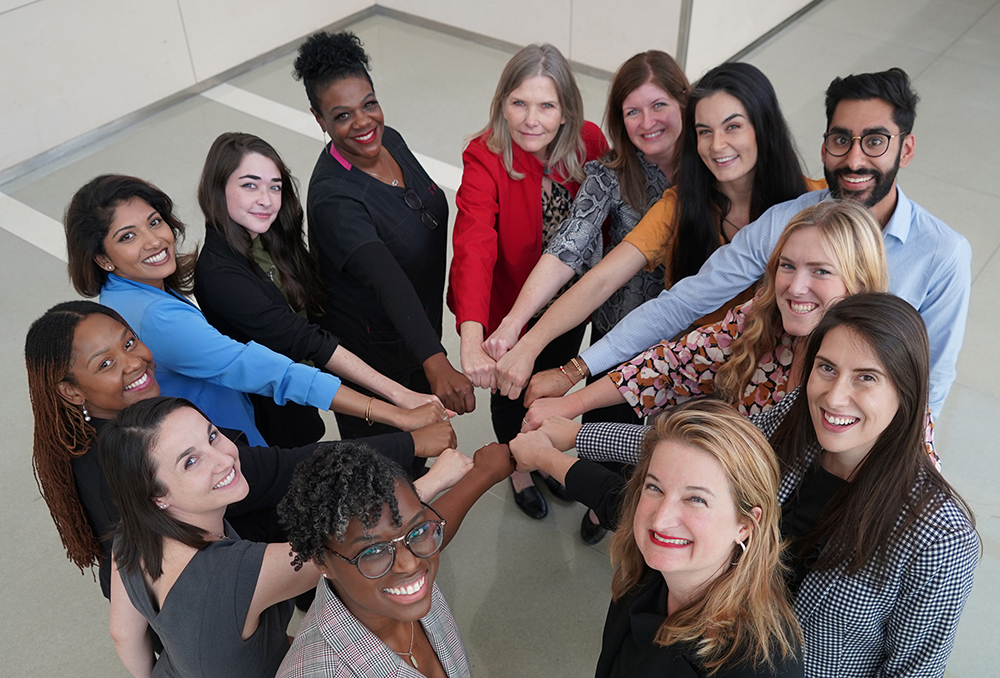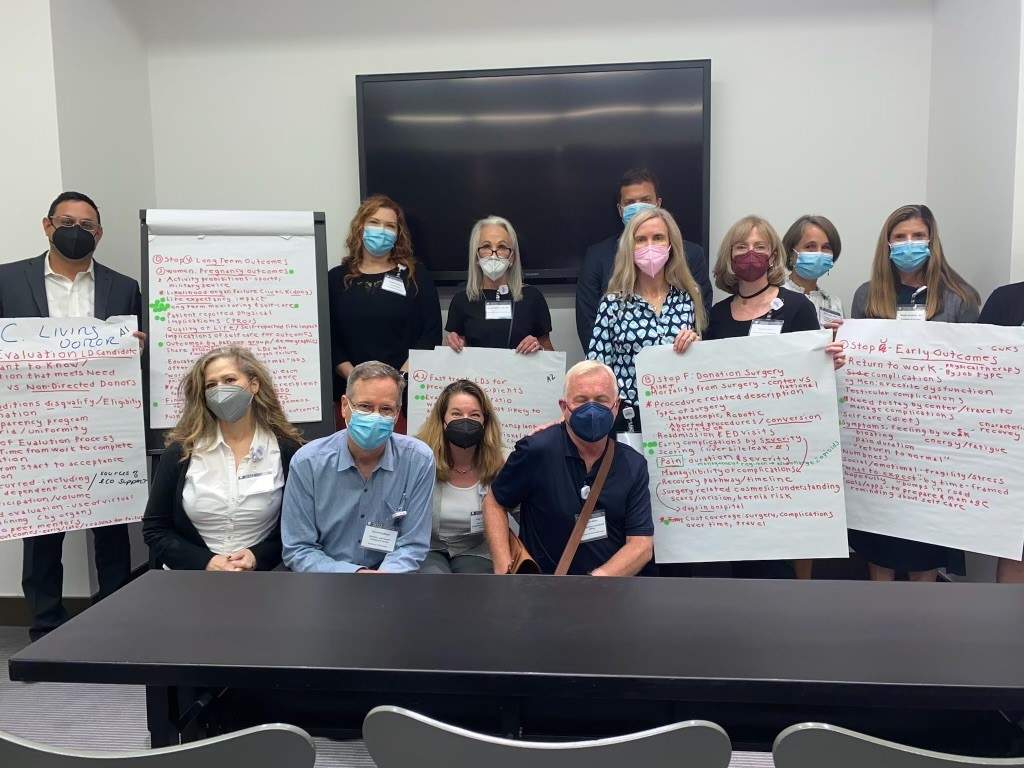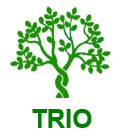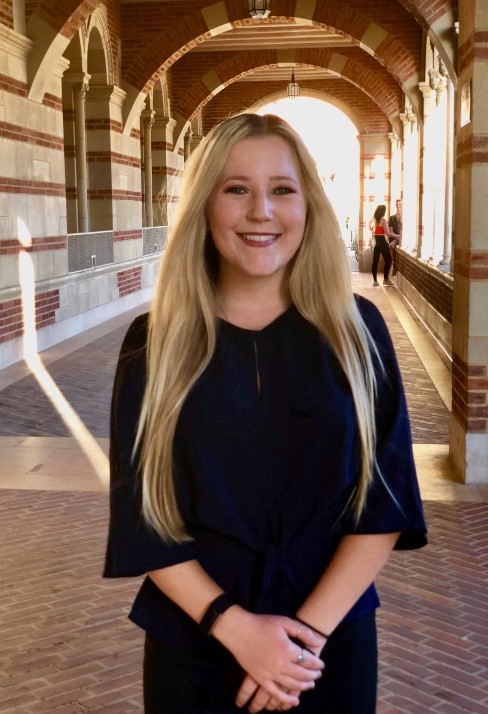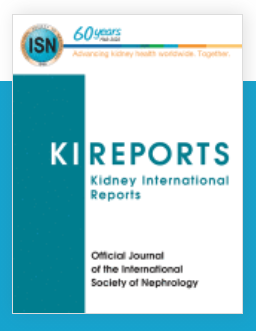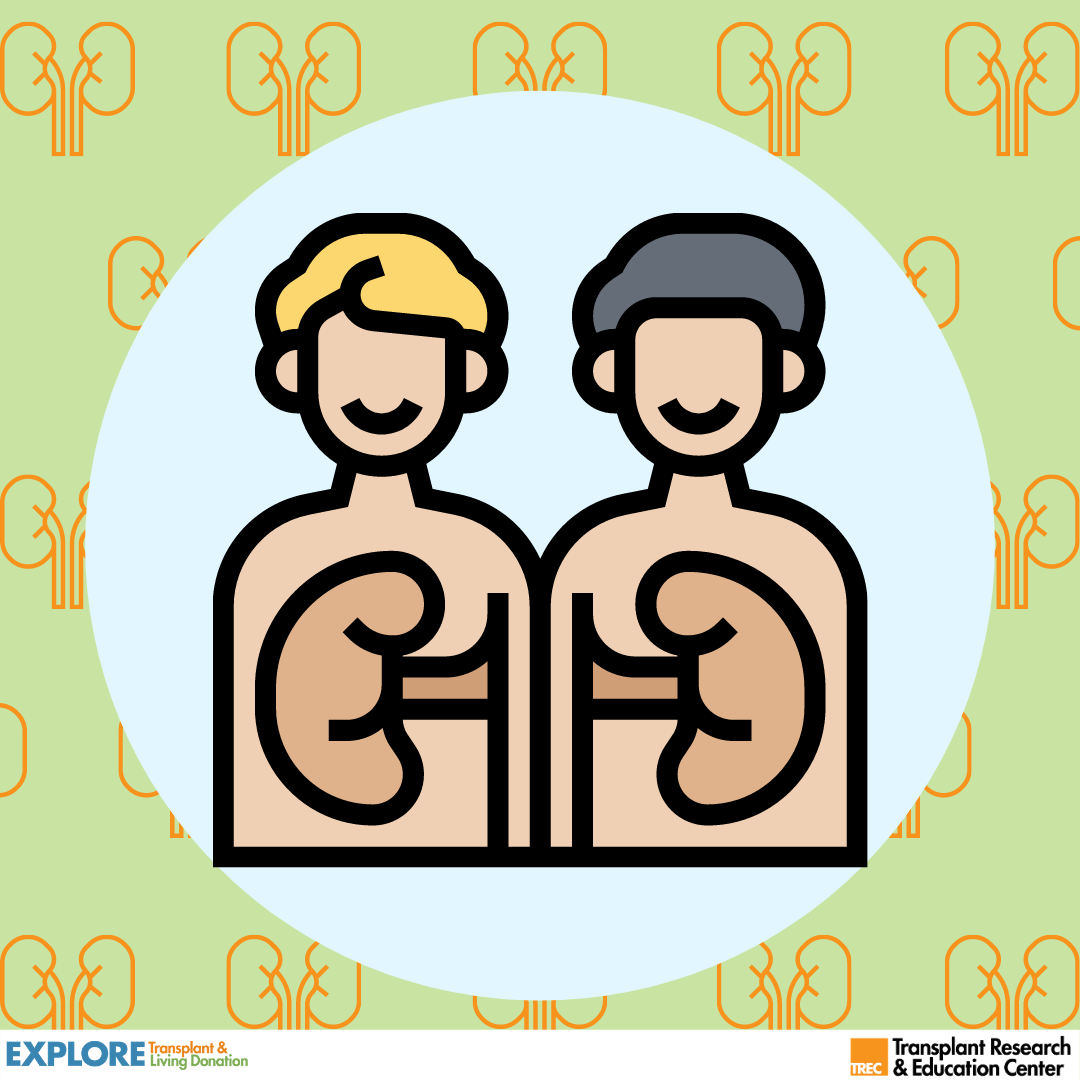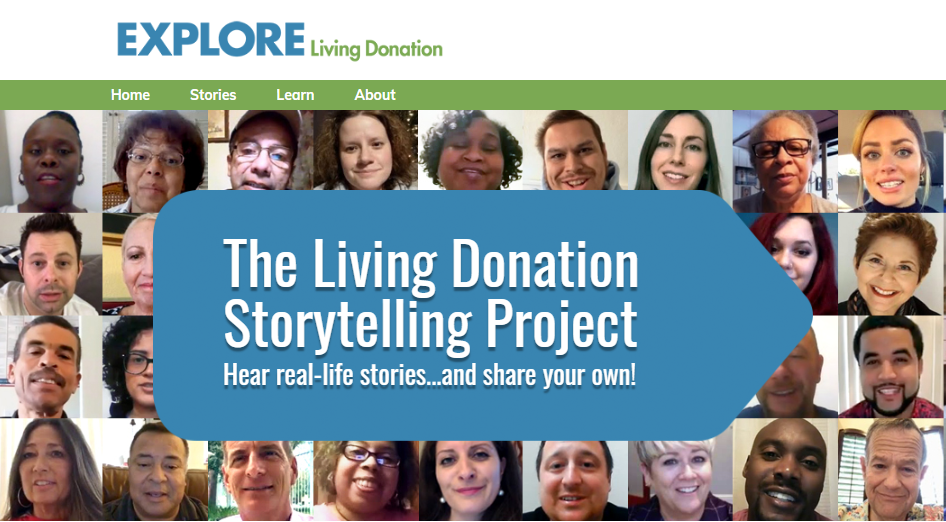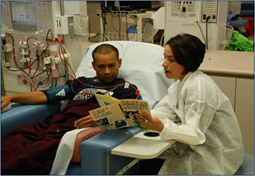Houston Methodist Academic Institute Human Resources presents: A Virtual Fireside Chat with Dr. Amy Waterman. Watch the video to learn more about Dr. Waterman’s background, career journey, and current projects.
2022: A year of transition
The research team representing the Patient Engagement and Research Lab, now based in Houston, Texas, ends the year very grateful to be together. Thanks to the support and mentorship of Drs. Osama Gaber, Chief of Surgery at Houston Methodist Hospital, and Mark Ghobrial, Medical Director of Transplant Center, Dr. Amy Waterman was recruited to Houston Methodist Hospital and J.C. Walter Jr. Transplant Center to establish a broader Patient Engagement and Research Lab to advocate for …
Prioritizing patient priorities nationally: Key takeaways from the People Driven Transplant Metrics Consensus Conference
Written by Alexis Bobu, Scientific Writer, Houston Methodist Hospital Department of Surgery and J.C. Walter, Jr. Transplant Center The Scientific Registry of Transplant Recipients (SRTR) hosted the People Driven Transplant Metrics Consensus Conference in Bloomington, Minnesota on July 18 – 20th, 2022 to develop priorities to expand transplant metrics to better include what is important to transplant patients, donors, and those that love them. For two days at the Mall of America, patients, living donors, …
TREC partners with Transplant Recipients International Organization to launch the Post-Transplant Cancer Project
By Erica Ho, Senior Research and Education Associate Post-transplant cancer (PTC) is one of the leading causes of death among organ and tissue transplant recipients. This is because the immunosuppressive medicines recipients need to take to prevent graft rejection weakens their immune system, increasing their risk of developing cancer by 2-3 times compared to the general population.1 However, many cancers, if detected early enough, can be treated and transplant recipients can continue living long and …
TREC’s participation at American Transplant Congress 2021
The American Transplant Congress is the annual meeting of the American Society of Transplant Surgeons (ASTS) and the American Society of Transplantation (AST). This year, Dr. Amy Waterman and the Transplant Research and Education Center team have participated in submitting 13 abstracts to the event – all of which have been accepted and will be available for public viewing at the virtual event from June 4 – 9. Eight of the 13 abstracts list Dr. …
2020 year in review: championing patient-centered work
By Brian Ha, Intern With 2020 winding down, let’s take a moment to reflect on all that we have accomplished this year for the transplant and living donation community. Together with our partners, we launched the COVID-19 Kidney / Transplant Listening and Resource Center, designed new education for living donors and transplant recipients in partnership with the community, presented our work on digital storytelling and innovative education tools at talks and conferences hosted by the …
Listening to the transformational experience of kidney patients and living donors
By Ally Zweigle, Intern Throughout my time at TREC, I progressed from knowing very little about what kidney disease is like for those who have it, let alone its astounding effects on both the diagnosed individual as well as those around them, to being convinced that I should someday donate my own kidney to someone in need. Perhaps this was a consequence of one of my internship assignments, which was to code video submissions for …
Important takeaways from the American Association of Kidney Patients annual patient meeting
By Erica Ho, Research and Education Associate On September 11, I attended Day 1 of the American Association of Kidney Patients (AAKP) National Patient Meeting. AAKP is the oldest and largest kidney patient organization in the United States and its mission is to improve the lives of kidney patients through education, advocacy, and community engagement. The National Patient Meeting is an annual event where members of the kidney community can access the latest news and …
Policy change to overcome disparities in kidney transplantation
By Alice Yang, Intern Implementing policy changes to improve access to kidney transplants and overcome disparities is an important first step in reaching these goals, but it is not enough. Three major policy changes have aimed at improving end-stage kidney disease outcomes and increasing access to transplants. These include the kidney allocation system (KAS) in 2014, the Advancing American Kidney Health Initiative in 2019, and finally, new changes implemented by the Centers for Medicare and …
The importance of tailored education to address transplant disparities
By Annika Pearson, Guest TREC Communication Writer A recent study titled, “Ethnic background is associated with no live kidney donor identified at the time of first transplant assessment—an opportunity missed? A single-center retrospective cohort study”, suggests that people from different minority ethnicity groups are not given the same amount or quality of information about their options for managing chronic kidney disease or for renal replacement therapies like transplantation, as others. Research has shown that patients …
A recent TREC publication on the power of a digital library of living donor stories
By Erica Ho, Research Associate There are over 740,000 people in the United States living with end-stage kidney disease (ESKD)1,2, but only around 6500 transplants are performed every year due to a severe shortage in available kidneys2. Problems like limited kidney transplant education and medical mistrust make it difficult for enough donors and recipients to be matched3,4. Storytelling has been proven to be an effective strategy in increasing education and awareness for other health issues …
What it is like to be an intern at TREC
By Jessica Nunez, Intern Hello, my name is Jessica Nunez and I am from Santa Clarita, California. I am entering my fourth year at UCLA, majoring in Cognitive Science and Spanish, Community and Culture. I have been interning at Transplant Research and Education Center (TREC) since March 2019. As a freshman, I was overwhelmed with the school dynamic and completed multiple searches in efforts to find a job that encompassed my passions and brought a …
Surveying Spanish-speaking kidney patients
By Yaquelin Arevalo Iraheta, Junior Research Associate. Using an interpreter is worse than having both the patient and provider speak the same language because it loses the personal and intimate element between both parties. Breaking the language barrier that Spanish-speaking patients face when receiving healthcare can also help them overcome cultural barriers such as mistrust of their provider. One of the research projects going on at the Transplant Research and Education Center (TREC) involves surveying …
Announcing the launch of the Listening & Resource Center (KTLRC) & bilingual educational guide
By Emily H. Wood, Research Associate The Transplant Research and Education Center (TREC), has launched the COVID-19 Kidney / Transplant Listening & Resource Center (KTLRC). The KTLRC is a toll-free call center that allows patients, their loved ones, and caregivers to connect with our experienced staff to share their questions, concerns, and receive answers, education, and referrals for additional resources. The KTLRC can be reached at: 1-800-830-0484 trec@mednet.ucla.edu We created the KTLRC in direct response …
Recommendations for making transplant education accessible for patients with CKD stages 3-5
By Grace H. Kim, Research Associate The recent publication, “Recommendations for Systematizing Transplant Education Within a Care Delivery System for Patients with Chronic Kidney Disease Stages 3 to 5”1 by Waterman et al., discusses the findings from a telephone survey of 40 kidney patients, 13 support persons, and 10 providers who were asked about barriers to transplant education and their educational preferences. This review highlights the key barriers identified by chronic kidney disease (CKD) and …
Guiding more patients from the dialysis center to the transplant waitlist
By Anne Osuji, Research Associate In “Education Strategies in Dialysis Centers Associated With Increased Transplant Wait-listing Rates,” Dr. Waterman and coauthors explore the many challenges associated with delivering transplant education in dialysis centers and recommend education strategies that are shown to be associated with increasing waitlisting rates. A Need for Effective Education for Dialysis Center Settings There are many barriers to kidney transplant, with challenges reaching and educating prospective recipients being among the most prominent. …
QIP changes are coming in 2020: Is your dialysis center ready? The Kidney Transplant Toolkit can help
For Professionals in Nephrology, Dialysis, and Transplant: A discussion of CMS ESRD QIP changes that could impact your funding and the Toolkit that will help you be ready CMS requires dialysis centers to increase patients wait-listed for transplant Earlier this year, the Centers for Medicare and Medicaid Services (CMS) announced that, as part of its ESRD Quality Incentive Program (QIP) starting January 1, 2020, dialysis facilities will be required to report their Percentage of Prevalent …


